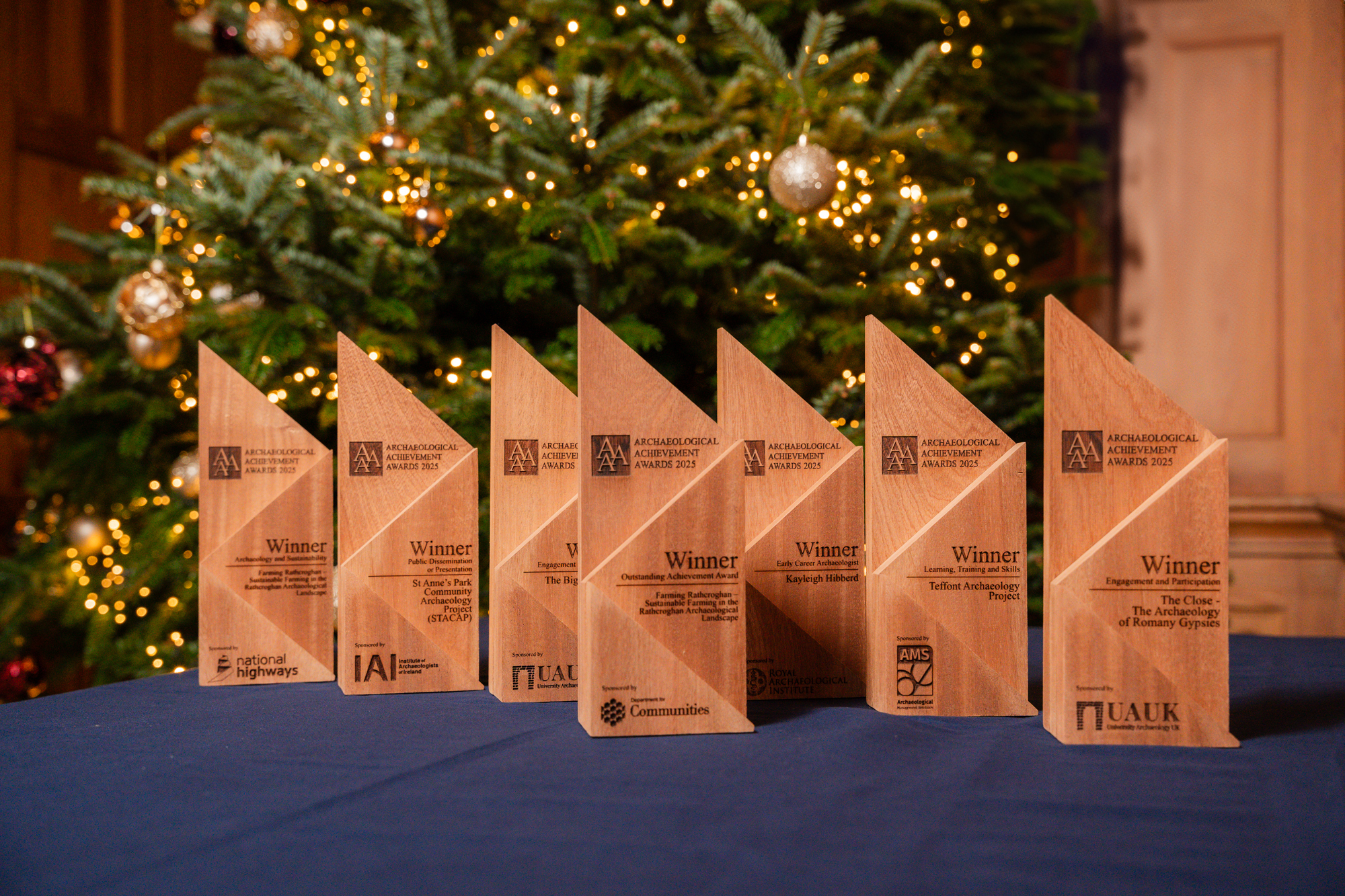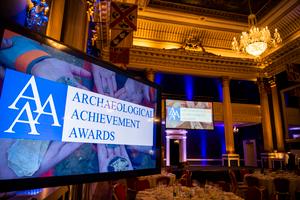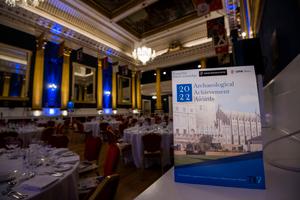We are delighted to introduce the winners of the Archaeological Achievement Award 2025.
The awards ceremony took place in the Great Hall at Queen's University Belfast on Friday 28 November 2025.
Discover all the incredible people and projects who we celebrated at the awards below.

2025 Archaeological Achievement Award Trophies, made by Lasers for Us. Photo: Collette O’Neill
Previous Award Winners
Find out more about the projects and individuals that have won awards, or been highly commended and be inspired to submit your own nomination.
About the Awards
Formerly the British Archaeology Awards, the awards are coordinated by the Council for British Archaeology (CBA) with the support of a judging panel and aim to celebrate archaeological achievements from across the United Kingdom and Ireland. To reflect this change, we have renamed the awards the Archaeological Achievement Awards.
There are 5 award categories and one overall outstanding achievement award with an emphasis on a range of cross-cutting themes that are designed to show how archaeology relates to wider society, health and wellbeing, and place. The awards are judged by representatives from across the sector.
Award Categories
The five award categories are:
- Outstanding Achievement Award
- Archaeology and Sustainability
- Public Dissemination or Presentation
- Engagement and Participation
- Early Career Archaeologist
- Learning, Training and Skills



